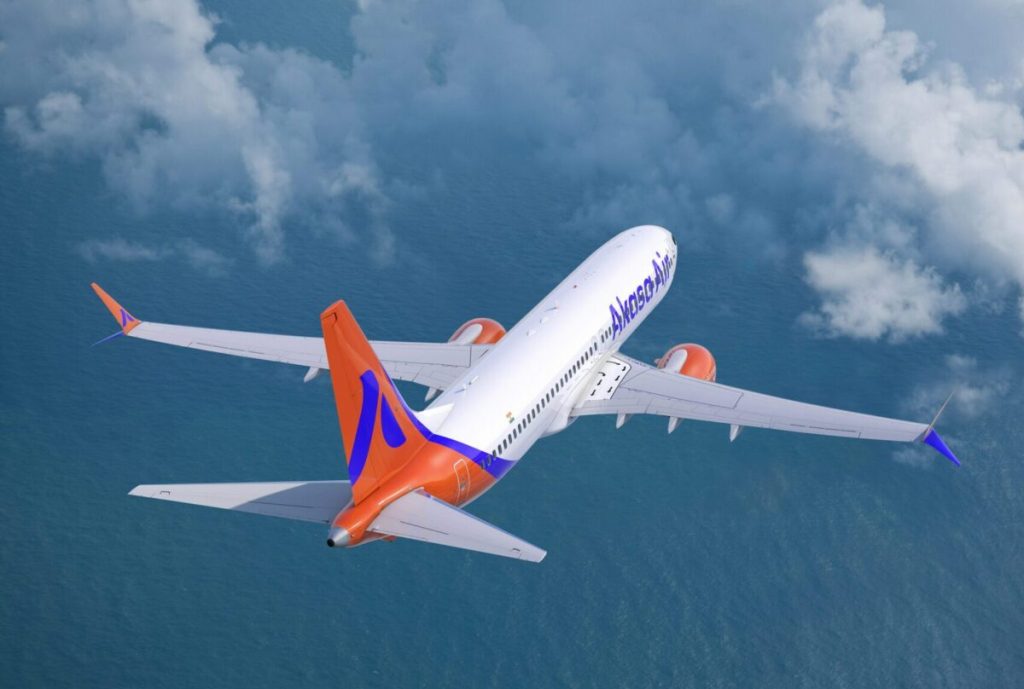India’s newest airline, Akasa Air, made its international debut in Doha, Qatar, just 19 months after its launch. The airline has also been granted traffic rights for three other international destinations: Kuwait, Jeddah, and Riyadh. Akasa Air has flown 7.75 million passengers connecting 21 cities since its launch in August 2022, with a domestic market share of 4.1% in 2023. The airline is rapidly expanding its global footprint and is focusing on capacity-constrained markets in the Middle East.
The decision to begin international operations in Doha, Qatar, was strategic as the country, along with Saudi Arabia and Kuwait, are constrained for capacity, making them interesting markets for Akasa Air. With a focus on traffic flows between India and the Gulf, Doha emerged as a prime choice for the airline’s international expansion. The traffic flows between India and the Middle East are expected to grow, prompting airlines to request bilateral expansions. Praveen Iyer, co-founder and chief commercial officer of Akasa Air, stressed the value of utilizing the airline’s assets in Qatar.
When selecting future routes, Akasa Air considers factors such as aircraft capabilities, capacity constraints, bilateral availability, and network connectivity. The airline’s fleet can fly within a six-hour radius of India, allowing it to target potential routes across the Gulf, Southeast Asia, Far East, and points in East Africa. Akasa Air deploys its assets strategically from key Indian metropolitan cities, like Mumbai, Delhi, and Bengaluru, to cater to diverse market demands. The airline plans to introduce flights to Jeddah, Riyadh, and Kuwait in the near future.
Despite industry-wide production challenges, Akasa Air remains optimistic about its fleet expansion and international operations. The airline has ordered 226 planes from Boeing, of which 24 have been delivered, with the remaining 202 aircraft set to be delivered by 2032. Akasa is on track with its delivery schedule and deployment plans. Addressing safety concerns, Iyer emphasized the safety standards of the Boeing 737 Max, stating that it is one of the most scrutinized aircraft worldwide and surpasses the norms set by the Indian aviation watchdog DGCA.
Akasa Air’s focus on tier 2 and tier 3 cities reflects the shifting market dynamics and the untapped potential in regional connectivity. The airline recognizes the increased relevance of these cities, especially amid the Covid-19 pandemic, and aims to address the demand-supply gap in India’s domestic aviation market. Prior to Covid-19, there was a strong emphasis on metropolitan routes, but Akasa Air’s deployment in tier 2 and tier 3 cities from Ayodhya to Agartala has proven successful. Despite capacity constraints in India’s domestic market, Akasa remains confident in further expansion in smaller cities.
Overall, Akasa Air’s strategic approach to international expansion, future routes, fleet expansion, and focus on tier 2 and tier 3 cities positions the airline for continued growth and success in the competitive Indian aviation industry. With a planned delivery schedule for its Boeing fleet and a focus on safety and market demand, Akasa Air is poised to become a key player in the region’s aviation sector.















